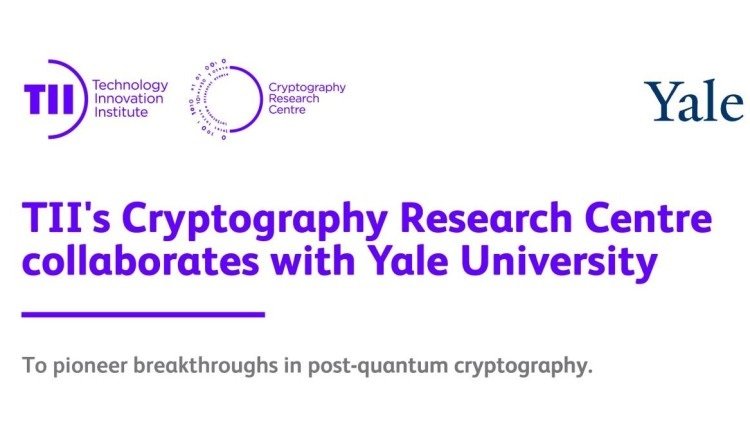Abu Dhabi and the UAE are working to pioneer breakthroughs in post-quantum cryptography and neuromorphic computing through an international partnership between Technology Innovation Institute’s (TII) Cryptography Research Centre (CRC), and Yale University, an Ivy League research university in Connecticut, United States.
 The two institutions will first join forces on ‘Post-Quantum Lightweight Crypto Hardware Accelerators and Trusted Execution Environment Designs’, a project at the intersection of emerging technologies that focuses on developing quantum-resistant crypto schemes within the context of emerging quantum algorithms that can be run on a sufficiently large quantum computer. By leveraging post-quantum cryptographic (PQC) algorithms, the project aims to guarantee the necessary measures of security even as today’s public cryptographic standards, such as RSA and Elliptic Curve Cryptography (ECC), become ineffective when a powerful quantum computer is built and can run Shor’s quantum algorithm. The project is also exploring post quantum lightweight cryptography with a focus on highly constrained devices.
The two institutions will first join forces on ‘Post-Quantum Lightweight Crypto Hardware Accelerators and Trusted Execution Environment Designs’, a project at the intersection of emerging technologies that focuses on developing quantum-resistant crypto schemes within the context of emerging quantum algorithms that can be run on a sufficiently large quantum computer. By leveraging post-quantum cryptographic (PQC) algorithms, the project aims to guarantee the necessary measures of security even as today’s public cryptographic standards, such as RSA and Elliptic Curve Cryptography (ECC), become ineffective when a powerful quantum computer is built and can run Shor’s quantum algorithm. The project is also exploring post quantum lightweight cryptography with a focus on highly constrained devices.
The neuromorphic computing project, ‘Energy-based Probing for Robust and Explainable Spiking Neural Networks’, examines Spiking Neural Networks (SNNs), which have become popular as an energy-efficient alternative for implementing standard artificial intelligence tasks. Spikes or binary events drive communication and computation in SNNs that are close to biological neuronal processing and offer the benefit of event-driven hardware operations.
The central focus of the collaboration is to explore the design space of the energy-accuracy-robustness-explainability trade-off and to design the hardware/software necessary to create truly functional intelligent systems. To ensure there is no overlap, both entities have been tasked with managing specific areas of the research in both projects.












